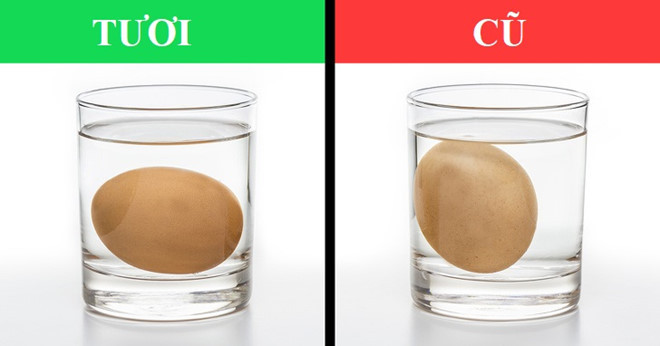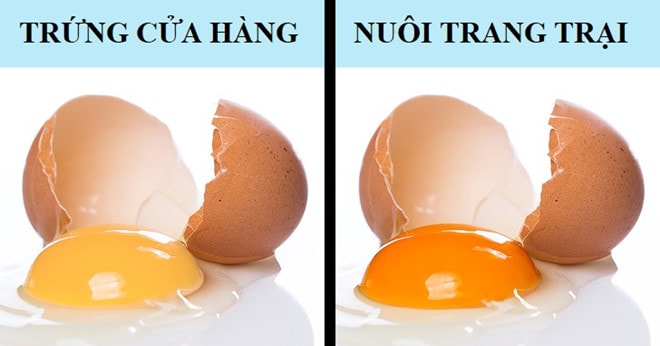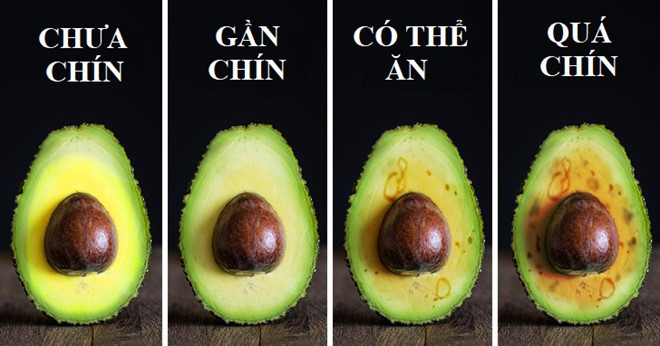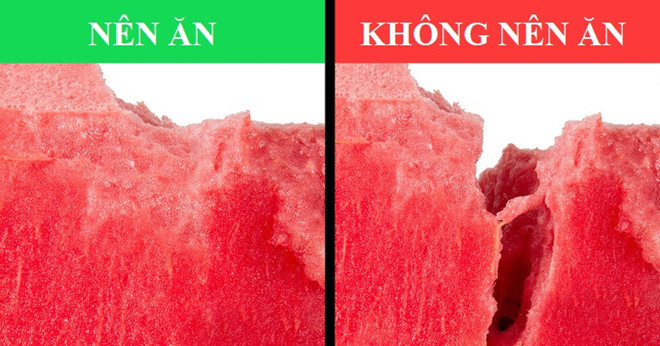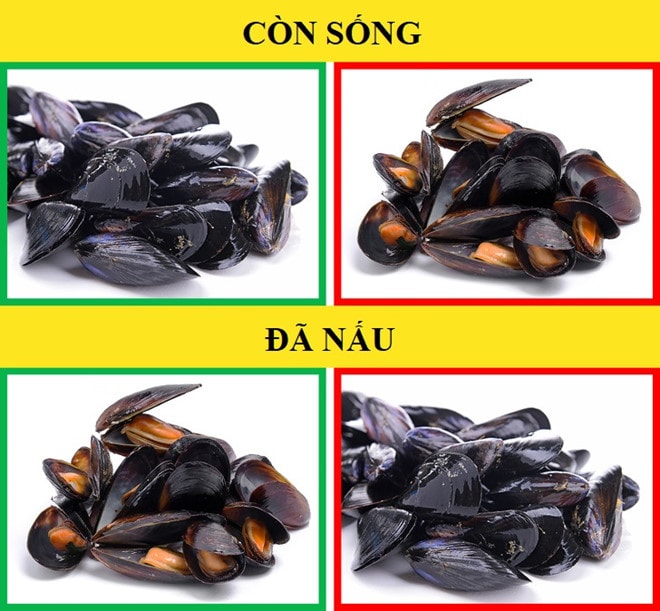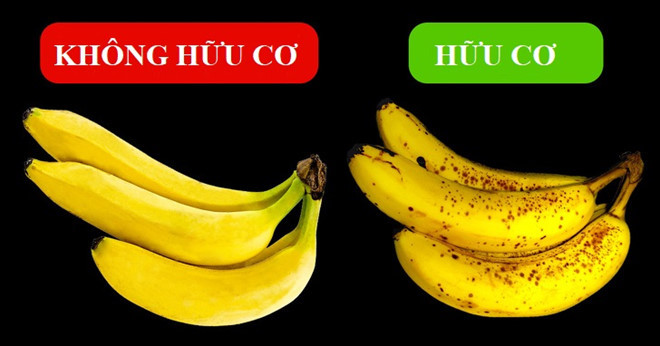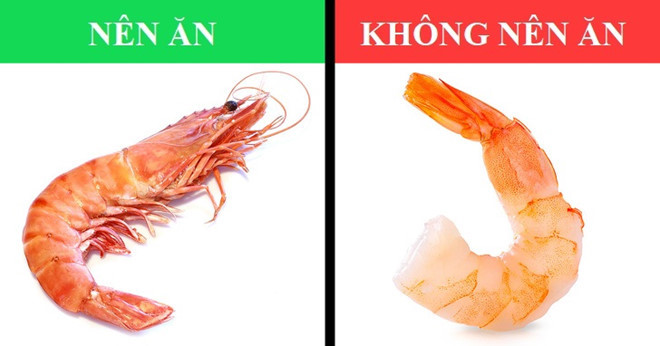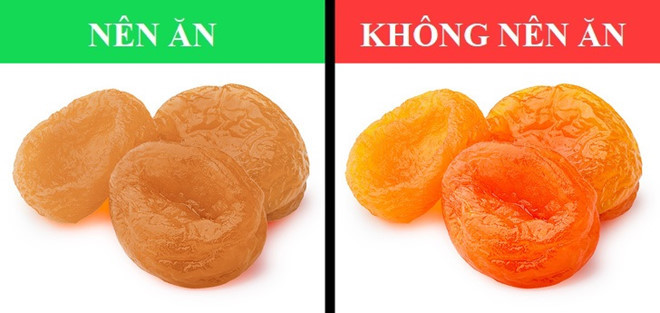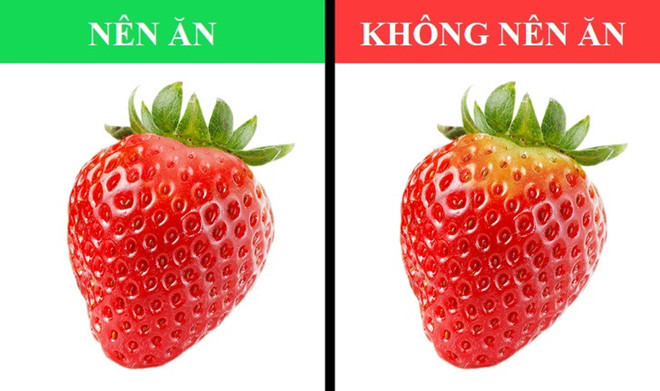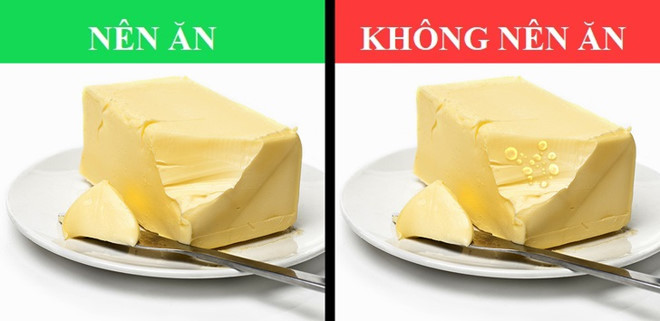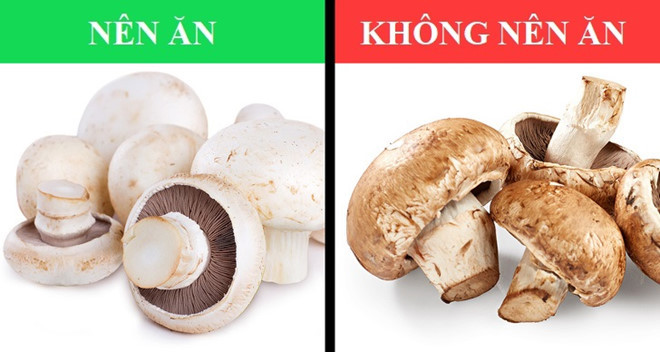How to check if the food you are eating is clean or not
Eggs, shrimp, watermelon, mussels, clams, and oysters are common foods in everyday meals. Few people know how to check if they are clean and safe.
|
| Choose fresh eggs:A simple and popular test to test the freshness of eggs is to use a glass of water. Drop an egg into the glass of water and see what happens. If the egg sinks and lies on its side, it is fresh and delicious; if it sinks but stands upright at an angle, the egg is about 1-2 weeks old. And if the egg floats on the surface of the water, it is too old to eat. As the egg ages, more air will penetrate through the eggshell, causing the egg to float. |
|
| Also, one way to tell a farm-raised egg from a regular egg in a grocery store is to pay attention to the color of the yolk. A farm-raised egg will have a dark yolk, while a store-bought egg will have a lighter yolk. |
|
| Choose a good avocado:Peel an avocado. If the skin peels easily and has a green underside, the avocado is good and ripe. If the stem is brown, the avocado is ripe and you will see dark spots around the flesh when you peel it. If the stem has not fallen off, the avocado is not ripe enough to eat. |
|
| Choose watermelon:After cutting open a watermelon, if you see cracks on its surface, it is better to throw it away. These cracks may be caused by chemicals used by farmers to stimulate rapid growth of watermelons. If eaten, they can cause serious health problems including poisoning, vomiting, diarrhea or inflammation. |
|
| Eliminate the bad boy:Make sure the shell is tightly closed before cooking. If you see an open shell, tap it gently. If it closes, it is alive and edible, but if it remains open, throw it away because it is dead. When boiled or steamed, all "good" shells open. If they do not open, they are spoiled. |
|
| Choose chemical-free bananas:Many people find that bananas labeled as organic tend to develop black spots more easily. When choosing bananas, avoid those that are gray. These bananas are not tasty and their color means that they were picked before they were ripe or stored in the wrong conditions for too long. Choose bananas that are bright yellow. Avoid bananas with small black spots on the skin, as these are fully ripe and have the best aroma and flavor. |
|
| Choose shrimp:If you want to buy fresh prawns, choose prawns with their heads on, as they may have thawed if they are not. Prawns are often frozen and shipped without their heads, as the heads contain a lot of fat which can spoil the texture of the prawns over time. Some characteristics of fresh prawns include a fresh smell of the sea, firm eyes and legs. |
|
| Dried fruit:Some manufacturers may add preservatives to make their dried fruit look appealing and prevent discoloration. These fruits may contain sulfites, which are harmful to your health. To avoid this, choose dried fruit that is naturally brown or gray in color rather than bright, shiny colors. |
|
| Choose ripe strawberries:If possible, buy strawberries locally in season rather than imported ones, which are often picked before they are ripe. Choose bright red strawberries and avoid those with white spots around them, as this means they are not ripe. Don’t be afraid to buy strawberries that are misshapen, as this has nothing to do with the taste inside. Even perfectly beautiful ones are bred to grow. |
|
| Butter:Butter is often adulterated so it is important to know how to spot it. Natural butter is made from cow's milk and is more expensive than the alternatives. Real butter has a natural colour and melts evenly, whereas butter made from vegetable oils leaves droplets on the surface as it melts. Butter containing vegetable fats also melts more quickly than butter made from cow's milk. |
|
| Removing dark mushrooms:Spoiled mushrooms are more likely to stick to the surface and darken. When this happens, it causes the mushrooms to spoil more quickly, so it is best to cook them while they are still fresh. |

